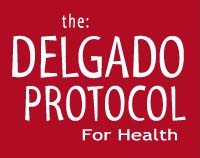Avoiding Autism, High-Functioning Autism, and Chronic Disease
Fighting Autism Through Methylation
 Autism Spectrum Disorder, also known as ASD, is a developmental disability. ASD effects a wide variety of skills needed to function. These skills include communicating in a social environment, uncommon behavior (hand flapping), repetitive behaviors, inability to adjust to new/different situations, etc. Avoiding Autism completely can be difficult, however there are ways to reduce your or your child’s risk. It is called Methylation. Methylation consist of using your “methyl group” and applying it towards the critical functions of the body, like fighting an infection, or thinking.
Autism Spectrum Disorder, also known as ASD, is a developmental disability. ASD effects a wide variety of skills needed to function. These skills include communicating in a social environment, uncommon behavior (hand flapping), repetitive behaviors, inability to adjust to new/different situations, etc. Avoiding Autism completely can be difficult, however there are ways to reduce your or your child’s risk. It is called Methylation. Methylation consist of using your “methyl group” and applying it towards the critical functions of the body, like fighting an infection, or thinking.
Benefits of Methylation
Not having proper methylation, or “methyl” (a group of carbons containing three hydrogen atoms), can cause a wide range of complications that can later lead to severe health conditions such as Rheumatoid Arthritis, Anxiety, Autism, Diabetes, Insomnia, etc. To regulate your methylation there are several steps you can take. Consuming everyday vitamins and minerals such as zinc, and B12 (methyl cobalamin) can help get rid of heavy metals in the body such as mercury. Sleep can be benefited as well. Some of the breakdown in creation of melatonin involves methylation.
Outside Sources Which Can Affect Methylation
Imbalances in methylation can be caused by a variety of different sources. Methylation can be disrupted genetically, medicinally, or dietarily.
- Genetics– Our genes play a key role in proper methylation. Variations in Homocysteine levels can determine whether or not our body is naturally producing healthy methylation.
- Medications– Proper methylation can be interrupted by certain medications such as oral contraceptives. Methylation can also be blocked by smoking cigarettes.
- Diet– The way we eat can determine if our body is producing the correct amount of methylation necessary. Not eating enough protein can lead to depletion in a key vitamin our body needs, B12.
Over-Methylation
Too much methylation may seem like a positive thing, but can actually do some very severe damage. Producing too much methyl, can cause an overproduction of serotonin, norepinephrine, and dopamine. Having high levels of these three chemicals can cause negative side effects such as weight gain, and even memory loss.
Under-Methylation
Not producing enough methyl can definitely have its positive and negative results. Under-methylation can cause a person to become more of a perfectionist, and achieve high accomplishments. Unfortunately, too little methyl can also cause a person’s serotonin levels to drop which in turn can lead to depression, anxiety, digestive problems, headaches, insomnia, etc.
*This article is based off an interview with Dr. George Rozakis, and Dr. Nick Delgado
*Article written by: Jade Whelchel



